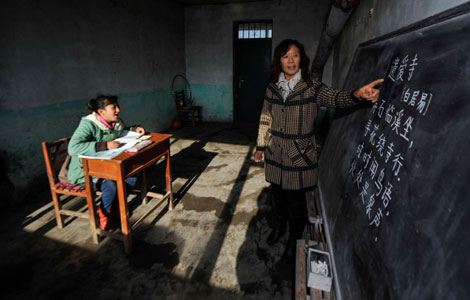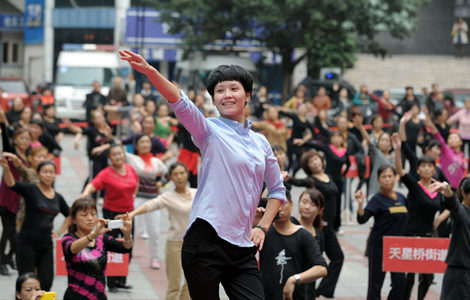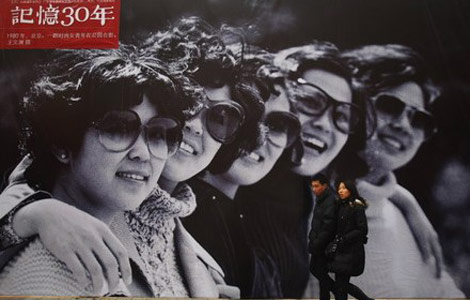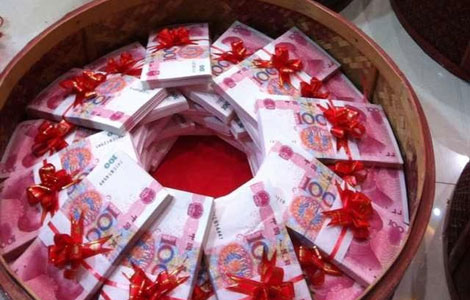

 |
|
Women play guangchangwu, or group dancing, in Chongqing, Southwest China, Nov 4, 2013. [Photo/icpress.cn] |
"After all, guangchangwu keeps me happy, healthy and feeling young," said Tan, who suffers from rheumatoid arthritis and needs to keep her body active.
"I love the music my teacher has chosen and I'm envious that she can keep such a good figure in her old age," Tan said with a smile after dancing to an English pop song.
While the gray-haired dancers in public squares clearly enjoy their exercises, some people living nearby find the loud background music unbearable.
Zhou Libin, the 42-year-old owner of a massage shop, lives in a building separated from Yuexiu Park by a wall, and says the music from the guangchangwu groups wakes him up the morning.
"It's annoying, because I don't need to wake up so early to catch a bus to the office," Zhou said.
"However, I don't think guangchangwu is a bad thing. I know it's important in the lives of retirees. I can accept it if they dance further away from the wall and keep their loudspeakers turned down."
Not all people are as tolerant as Zhou. Some have even made serious protests against the noisy guangchangwu groups.
On Oct 23, feces was thrown down onto a "square dancing" group in Wuhan, Hubei province, by a resident living in a nearby building.
On Aug 30, a Beijing resident fired off his hunting rifle and set three Tibetan mastiffs on a crowd of guangchangwu dancers in his neighborhood.
The draft of Guangzhou's new regulations on parks was published on the website of the city's legislative affairs office on Sept 24, and public responses were collected until Oct 15.
The regulations have been included in the 2014 lawmaking plan of the standing committee of Guangzhou People's Congress, Chen Xiaoqing, director of the legal affairs division of the committee, told Nanfang Daily.
Chen led his colleagues on a tour of several parks on Tuesday.
"Group entertainment activities are permitted on the condition that they don't disturb the everyday lives of other people or disrupt order in the park. If they make a sound louder than permitted or use loudspeakers in silent zones, the law should prevent them from doing so," Chen said.
He added that the focus of the new park regulations is the control of noise but it won't go too far.Peng Peng, a senior researcher at Guangzhou Academy of Social Sciences, told China Daily on Wednesday that to make the law enforceable, the regulations should include details such as the maximum decibel levels allowed and the minimum distance between nearby buildings and the areas for fitness and recreation activities.
"The government also needs to provide the public with alternative spaces in which they can do group singing and dancing," Peng said.







